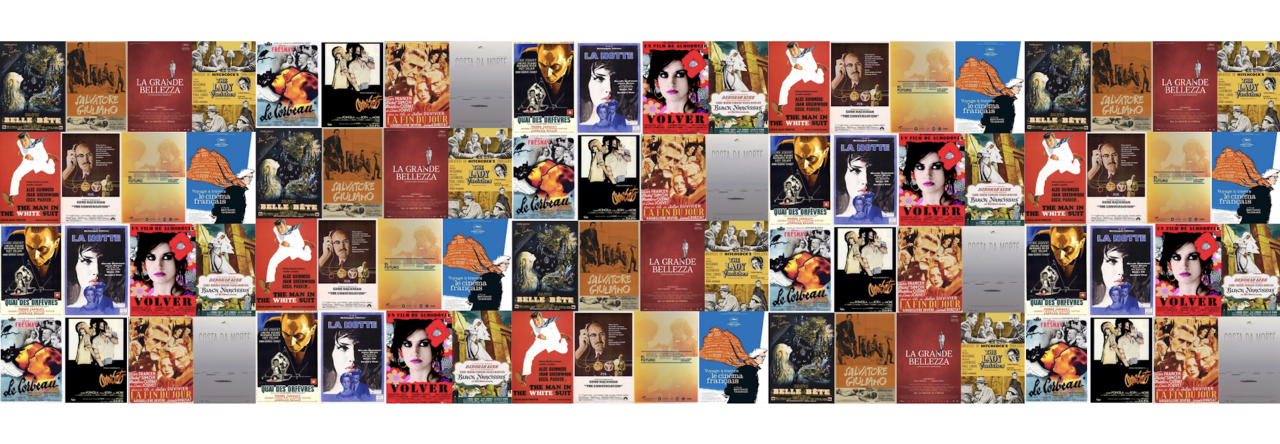
I completely missed Festival Márgenes last year. I don’t remember exactly how that happened – it either took place earlier than previous years (I have a vague recollection of finding out after it was over), or it coincided with me having norovirus (which I have pretty successfully blocked from my memory, but it occurred at the same time of the year). Either way, I missed something that has been an annual event on the blog since 2014 – and I have always previously found something to spark my interest, that I might not have otherwise encountered.
The festival focuses on films without theatrical distribution (a lot of the films are documentaries and there are usually quite a few medium-length films included), made on the margins (or outside) of existing film industries in the Iberian Peninsula (Spain and Portugal) and Ibero-America (Spanish and Portuguese-speaking Latin American countries). You can find an extended explanation / mission statement for the festival, here. I would characterise them as being interested in the world as it is and as it might be, openly seeking innovative forms of representation and expression, and shining a light on lives off the cinematic beaten track. A lot of the films that I’ve previously watched via Festival Márgenes feel personal to the filmmaker, like this is something that they have wanted or needed – or felt compelled – to explore and share in a visual format. Personal and collective histories have been a recurrent theme in those earlier films (although it could simply be that those were the ones that caught my attention because I’m interested in the interweaving of history and memory).
The festival’s programme is divided into several sections and takes place both online and in cinemas in Madrid. The online part – free to view, and taking place between 20th November and 8th December – focuses on the ‘Sección oficial‘. The festival summarises the selection as ‘Catorce películas de siete nacionalidades distintas que comparten un espíritu de profunda libertad y búsqueda incesante abordado desde preceptos muy dispares’ (Fourteen films of seven different nationalities, sharing a spirit of profound freedom and relentless searching approached via very disparate precepts). The films included are (links take you to the relevant streaming page – you need to register with the site to get started once the festival is live):
- ❤ (María Antón Cabot, Spain, 2018 – 65 min)
- 7 limbos (Alexandre Cancelo and Berio Molina, Spain, 2019 – 71 min)
- Andrómedas (Clara Sanz Cuesta, Spain, 2019 – 83 min)
- De barrio (Xurxo Chirro, Spain, 2019 – 69 min)
- Doble yo (Felipe Rugeles, Colombia-Spain, 2018 – 80 min)
- El hijo del cazador (Germán Scelso and Federico Robles, Argentina, 2019 – 65 min)
- Historia de mi nombre (Karin Cuyul, Chile, 2019 – 78 min)
- Los pilares (Raúl Vallejo, Lucía Touceda, Javier Cástor Moreno, and Claudia Negro, Spain, 2018 – 59 min)
- Millions (and Millions) of Memories (Laura Rius Aran and Carlos Solano, Spain-France, 2019 – 40 min)
- Pirotecnia (Federico Atehortúa Arteaga, Colombia, 2019 – 83 min)
- Príncipe de paz (Clemente Castor, Mexico, 2019 – 84 min)
- Retrato de propietarios (Joaquin Maito, Argentina, 2018 – 79 min)
- Sete anos em Maio (Affonso Uchoa, Brazil, 2019 – 41 min)
- Tempo Comum (Susana Nobre, Portugal, 2018 – 64 min)
The films sometimes have restrictions as to which countries they can be viewed in, and they won’t necessarily have English subtitles (some have in the past). The answer re: subtitles will become apparent once the festival begins. If you speak any Spanish at all, it’s worth taking a chance anyway (and the non-Spanish language films usually have Castilian subtitles) – it doesn’t cost you anything, so you have nothing to lose, and you’ll watch something that’s unlikely to make it to a screen near you. I will be intending to at least catch the films by Xurxo Chirro (who I have previously interviewed in relation to his film Vikingland (2011)) and Affonso Uchoa.




